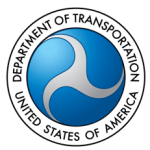- Industry: Government
- Number of terms: 13754
- Number of blossaries: 0
- Company Profile:
A term stated on the bills of lading offering lower shipping rates to importers east of the Rockies, provided merchandise from the Far East comes in through the West Coast ports. OCP rates were established by U.S. West Coast steamship companies in conjunction with western railroads so that cargo originating or destined for the American Midwest and East would be competitive with all–water rates via the U.S. Atlantic and Gulf ports. Applies to eastern Canada.
Industry:Transportation
A term of measure referring to 42 gallons of liquid at 600 degrees.
Industry:Transportation
A person whose business is to act as an agent on behalf of the shipper. A freight forwarder frequently makes the booking reservation. In the United States, freight forwarders are now licensed by the FMC as “Ocean Intermediaries.”
Industry:Transportation
All vessels designed to carry bulk homogeneous cargo without mark and count such as grain, fertilizers, ore, and oil.
Industry:Transportation
Place where loose or other non–containerized cargo is ungrouped for delivery.
Industry:Transportation
Standard Carrier Abbreviation Code identifying an individual common carrier. A three letter carrier code followed by a suffix identifies the carrier’s equipment. A suffix of “U” is a container and “C” is a chassis.
Industry:Transportation
A tariff term referring to ocean rate less accessorial charges, or simply the base tariff rate.
Industry:Transportation
Breakbulk vessels both refrigerated and unrefrigerated, containerships, partial containerships, roll-on/roll-off vessels, and barge carriers. A general cargo vessel designed to carry heterogeneous mark and count cargoes.
Industry:Transportation
Ships with a capacity for 13 or more passengers and any form of cargo or freight.
Industry:Transportation
The weight by which a shipment is less than the minimum weight.
Industry:Transportation
